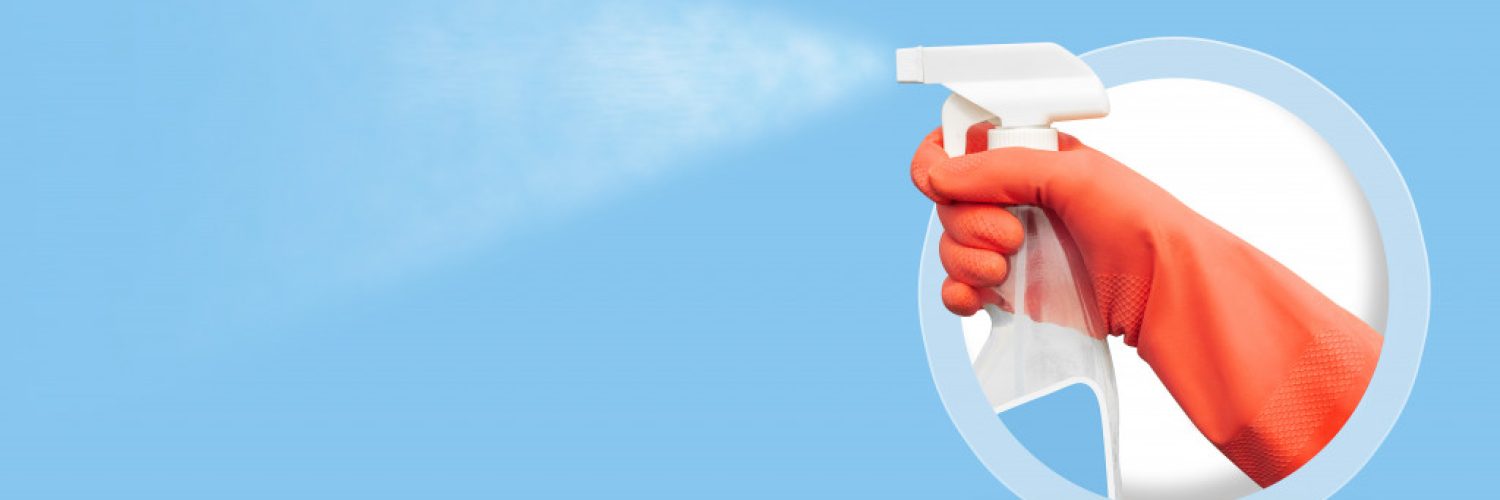Regular cleaning is a critical part of keeping your home healthy. This includes preventing viruses, bacteria, and other pests that will not only cause structural damage, but also pose health risks to you and your family.
Follow these tips to keep your home tidy and disease-free.
Disinfect your bathroom
Bathrooms are hotspots for bacteria such as fecal bacteria, influenza, streptococcus, E. coli, hepatitis, salmonella, shigella and Methicillin-resistant Staphylococcus aureus (MRSA). As such, toilets, sinks, and other high-traffic areas should be cleaned at least once a week.
Sink
Spray a disinfectant bathroom cleaner all around the sink and faucet handles and wipe with a cloth or soft sponge.
Toilet
Generously apply toilet bowl cleaner and let sit according to the manufacturer’s instructions. Then thoroughly scrub the seat and cover with a stiff-bristled toilet brush. Then flush.
Wipe down the toilet seat and handle with disinfectant wipes. After use, let the toilet brush dry and spray with disinfectant.
Shower walls
Mold can develop in the bathroom and trigger asthma attacks, skin rash, sore throat, and eye irritation. Use a disinfectant specially formulated to combat mold and fungus. Another way to prevent mold growth is to wipe down shower walls, tub, and curtains with a squeegee after bathing or showering.
Prevent kitchen pest infestations
To protect your kitchen from bacteria and pest infestations, regularly sanitize sinks, countertops, storage areas, and utensils. Wash dishes and cutlery immediately after use, store food in tightly sealed containers, and dispose of garbage properly.
Countertops
To keep countertops looking good as new, wipe a mild liquid detergent or commercial cleaner using a soft cloth. Scrub along seams or metal edging using a soft toothbrush. Then rinse with water and dry with a clean cloth towel.
Sponges, scrubbers, and towels
Sponges, scrubbers, towels, and dishrags are some of the most contaminated items in the kitchen. Ensure they’re rinsed thoroughly and air-dried after use. Both plastic and metal scrubbers must be sanitized in the dishwasher after every use. If a dishwasher is not available, rinse the scrubber to eliminate any visible dirt or food residue and soak it in a bleach solution for 10 minutes.

Garbage disposal
Garbage disposals are notorious for becoming a home for bacteria. To keep dirt and odors to a minimum, make sure to follow these steps once a week:
Step 1: Turn off the disposal and faucet then put six ice cubes in the chamber. Then add one tablespoon of baking soda, one teaspoon of bleach, three lemon slices, and six more ice cubes.
Step 2: Turn the disposal on without running water until the grinding stops.
Step 3: Keep the motor running and flush with cold water for 30 seconds.
Sink drains
Drain cleaning removes foul odors and reduces clogs. Pour one cup of hot water into the drain and let it sit for a minute. Then pour one cup of undiluted chlorine bleach and allow it to settle overnight. Do this method every one to two weeks to sanitize the drain and ensure it functions smoothly.
Refrigerator
Refrigerator drawers and shelves often accumulate debris and foul odors from leftover food. To clean your fridge, begin by hand-washing and wiping removable drawers, shelves, and wire racks in hot water and mild dish soap.
Allow any glass components to warm up to room temperature before applying hot water to prevent cracks and damage. To soften stubborn food spills, cover them first with a warm, wet cloth for a few minutes. Then remove them with a nonabrasive scrubber.
Have your carpets professionally cleaned
Carpets are common breeding grounds for bacteria, allergens, and dust particles. Such contaminants can trigger various health issues especially in children and the elderly. Airborne particles in carpets can result in or aggravate existing breathing problems such as allergies and asthma.
Additionally, carpets clogged with dust, dirt, and debris can obstruct airflow in your home, making rooms feel unpleasant and stuffy. While regular vacuuming may help eliminate dirt, bacteria, and dust mites, it cannot completely remove stubborn allergens which may accumulate over time and increase the risk of health problems. Scheduling professional carpet cleaning on a regular basis can help your family breathe easier and improve airflow and quality.
Amid the current global pandemic, there’s no better time to understand how keeping your home clean can help fight the spread of disease. Practicing simple cleaning measures can help protect your family’s health and everyone else’s.

